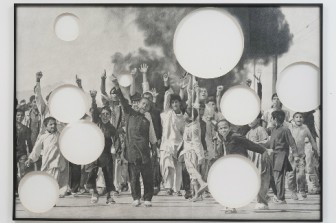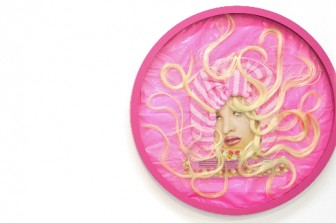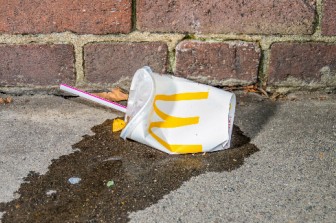Exhibitions
Homage to "Video Zero"
In 2003, the Haifa Museum of Art held the exhibition "Video Zero: Communication Interferences: The Projected Image – The First Decade." This exhibition sought to address the lack of philosophical and critical discussion of the medium of video art in the Israeli art scene. The exhibition focused on the medium's early days, beginning in the 1960s during the cultural revolutions that sought to challenge the hegemony of the establishment.
"Donald Trump: Poster Boy"
This exhibition addresses the role of the poster in the internet age, with the emergence of a new public space that places no clear limits on what can be advertised and where. While Facebook, Instagram, and YouTube do choose to censor the content they host according to guidelines that determine which content may offend their user community, a significant amount goes undetected by "Big Brother."
"Data Jamming"
In the press and in the media – whether printed, broadcast, or published online – we are presented with distorted information. This commissioned, filtered information is carefully chosen and edited before invading our lives and dictating our actions. The exhibiting artists seek to expose and emphasize the contexts and conditions in which data and news items are organized and presented. They explore the system of socio-political, technological, and economic forces that mobilize the media industry.
Not Your Toy
The critical-ironic gaze appearing often in the exhibited works emphasizes the carnivorousness aspects of feminine shopping.The act of shopping itself is depicted as some sort of a subversive practice. The exhibition manifests the ways in which artists, particularly young female artists, use excess and radicalization as the means of artistic creation
Shopping Mall
Their works seek to comprehend the "mall" idea as it appears in the contemporary artistic discourse, with reference to the cultural assumptions and power relations it embodies.
Trash Culture
The variety of works presented seeks to emphasize that trash is one of the central elements in contemporary culture, both in daily life and in a subversive, theoretical context. The term "trash culture" denotes the view of trash as a necessary side effect of a capitalist society intent on the increased production of food, of commodities, and of ideas. As production soars, so does trash. In contemporary art, then, "trash" has become an idiom defining a cultural condition and shaping some of the channels of discourse pursued in the culture.
Lost in Translation
The works in this show seek to indicate a hollow, consumer-oriented trans-cultural world created by the unchallenged dominance of globalization. These works examine the multiple meanings involved in the import of commodities, customs, cultures, and people, and the aggression involved in its implantation, as a reflection of contemporary cultural imperialism.
Money with a Capital "M"
The works in the show reflect a conceptual connection between glitter and seduction, superficiality and fragility, while also representing the "want of matter" in Israeli art. Familiar classical motifs are presented as victims of Western consumer culture, which turns every cultural element – even sacred icons – into an object manufactured on a uniform production line. The different means of representation reflect a critical engagement with the world of obsessive consumption that has swept up Israeli society in general, and the field of art in particular.
Excessive Speed
The exhibition seeks to reflect the complexity involved in the symbolic value of the automotive world and the clash between the different spheres. Some of the works emphasize the use of the automobile in mapping out gender roles. These works challenge familiar cliches from the world of advertising, which tend to depict cars as objects similar to women – compliant and submissive. The works highlight the transformation of the automobile into a fantasy.
Sacred Goods
This exhibition focuses on the responses of contemporary artists to issues of religion and faith in the contemporary global reality, which is dominated by the consumer culture.











Please contact us and we will contact you as soon as possible